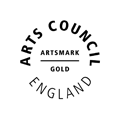History
Intent:
We believe it is the History curriculum’s moral imperative to develop all minds to think independently, respect and consider a variety of experiences and opinions to develop compassionate, and strong-minded individuals. Our historians become successful and progressive global citizens by studying a knowledge rich curriculum that offers the depth and breadth that truly reflects the history of our world. Through this curriculum, complimented and enabled through the development of literacy skills, pupils are prepared to tackle the rigours of a changing world.
We believe it is the History curriculum’s moral imperative to develop all minds to think independently, respect and consider a variety of experiences and opinions to develop compassionate, and strong-minded individuals. Our historians become successful and progressive global citizens by studying a knowledge rich curriculum that offers the depth and breadth that truly reflects the history of our world. Through this curriculum, complimented and enabled through the development of literacy skills, pupils are prepared to tackle the rigours of a changing world.
Resources and Routes:
History is taught by three subject specialists who have designed the curriculum to be chronological in the building of the student’s knowledge, enabling us to make conceptual connections to previous content and skills therefore strengthening holistic understanding of the subject.
Schemes of work are based upon second order concepts (change, continuity, cause, consequence and comparison) and substantive concepts e.g. power, empire, monarch, parliament which are similar to those taught at GCSE and A-Level ensuring students are equipped with the necessary historical skills to approach more challenge content.
Our curriculum, whilst traditional in its chronological structure, is based upon enquiries questions such as, ‘Did an Orange man cause the Troubles in Northern Ireland?’ with the aim of exposing students to a more diverse perception of the past e.g. Black Tudors, female suffrage, impact of the British Empire and the Middle East conflicts. These enquiries will be adapted to keep pace with the evolving historiography. There is a strong emphasis on British History and values and the impact of major turning points in World History.
All teachers teach according to the component plan but have the independence to deliver the content according to their own teaching style and for the needs of individual classes. We are consistent in our use of substantive concepts.
In Key Stage 3 students receive 1 hour of History per week. The popular GCSE course follows the OCR B syllabus and is taught across 2.5 hours per week. At A-Level we offer the OCR A studying US Civil Rights, The Early Tudors, Russia with the NEA on a topic of the student's choice after discussion with their teacher.
History is taught by three subject specialists who have designed the curriculum to be chronological in the building of the student’s knowledge, enabling us to make conceptual connections to previous content and skills therefore strengthening holistic understanding of the subject.
Schemes of work are based upon second order concepts (change, continuity, cause, consequence and comparison) and substantive concepts e.g. power, empire, monarch, parliament which are similar to those taught at GCSE and A-Level ensuring students are equipped with the necessary historical skills to approach more challenge content.
Our curriculum, whilst traditional in its chronological structure, is based upon enquiries questions such as, ‘Did an Orange man cause the Troubles in Northern Ireland?’ with the aim of exposing students to a more diverse perception of the past e.g. Black Tudors, female suffrage, impact of the British Empire and the Middle East conflicts. These enquiries will be adapted to keep pace with the evolving historiography. There is a strong emphasis on British History and values and the impact of major turning points in World History.
All teachers teach according to the component plan but have the independence to deliver the content according to their own teaching style and for the needs of individual classes. We are consistent in our use of substantive concepts.
In Key Stage 3 students receive 1 hour of History per week. The popular GCSE course follows the OCR B syllabus and is taught across 2.5 hours per week. At A-Level we offer the OCR A studying US Civil Rights, The Early Tudors, Russia with the NEA on a topic of the student's choice after discussion with their teacher.
Trips:
The study of history comes even more alive when you can see it, touch it and smell it! In order to broaden the horizons and experiences of our students we are looking to develop additional trips than what is currently offered:
The study of history comes even more alive when you can see it, touch it and smell it! In order to broaden the horizons and experiences of our students we are looking to develop additional trips than what is currently offered:
- Year 11 – Exeter Cathedral
- KS4 & 5 – New York and Washington D.C. residential
History Curriculum - Key Stage 3
YEAR 7
Autumn |
Spring |
Summer |
EQ: Who and what are the British? Migration through time overview
|
EQ: How powerful and influential was the Church in the medieval period?
|
EQ: What was it like to live in the Early Modern Period?
|
EQ: How did the Norman invasion impact England?
|
EQ: Did medieval people’s lives change for the better?
|
Value |
YEAR 8
Autumn |
Spring |
Summer |
EQ: How far did life change during the Industrial Revolution?
|
EQ: How far are the developments in Mali and Benin evidence of a West African ‘Boom’ in the 15th century?
|
EQ: What was the impact of the British Empire?
|
EQ: How far did Britain become democratic?
|
EQ: How did slavery impact on the people involved?
|
EQ: Was the “Great War” that great?
|
YEAR 9
Autumn |
Spring |
Summer |
EQ: How much was Germany changed by the Nazis?
|
EQ: How should the Holocaust be remembered – What was the Holocaust and why do we study it?
|
EQ: Who is to blame for the Israel – Palestine conflict?
|
EQ: Was World War Two just World War One part 2?
|
EQ: Why is Ireland so troubled?
|
Value |
KS4 - OCR History B(School's History Project) J411
Assessment |
Content |
Paper – British History Thematic Study: People’s Health c1250-present Depth Study: The Norman Conquest 1065-1087 40 marks each Exam – 1hr 45mins 40% of total marks |
People’s Health What was the most important factor preventing improvements in public health 1250-1500? -Limitations to progress; living conditions; responses to Black Death; government responses to health. What was the most important factor preventing improvements in public health 1500-1750? -Limitations to progress; living conditions; responses to Plague; government responses to health. What was the most important factor preventing improvements in public health 1750-1900? -Limitations to progress; living conditions; responses to Cholera; social reformers and government responses to health. What was the most important factor spurring on improvements in people’s health in the 20th / 21st centuries? -Causes of progress; living conditions; responses to Spanish Flu; responses to AIDs; health legislation; popularity of government intervention. The Norman Conquest To what extent did Anglo-Saxon England experience a Golden Age in 1065? Why did William win the Battle of Hastings? How did William gain full control over England between 1066 and 1071? What can research reveal about early castles? What exactly was the impact of the Norman Conquest on the English by 1087? |
Paper – History Around Us Exeter Cathedral 50 marks Exam - 1hr 20% of total marks |
-Why was Roman Exeter so significant? -Why did Exeter become a Cathedral city? -What was the impact of the Normans on Exeter? -Why did Bronescombe bother to re-build Exeter Cathedral? -What was the impact of the murder at the cathedral? -What was the impact of the Henrician Reformation? -What was the impact of the Reformation under Edward VI? -What was the impact of the Civil War on Exeter Cathedral? -What changes did Gilbert Scott make to Exeter Cathedral? -What effect did the Baedeker Raids have on Exeter Cathedral? -How typical is Exeter Cathedral? |
Paper – World History Period Study: Making of America, 1789 – 1900 World Depth Study Living Under Nazi Rule, 1933 -1945 40 mark each Exam – 1hr 45mins 40% of total marks |
Making of America What tensions arose as the USA grew 1789-1838? How did different groups see the American West 1838-1860? Slavery was the main cause of the Civil War – How far do you agree? To what extent did African Americans gain equality between 1861 and 1900? What was the impact of white settlers on the Plains? How did the lives of Native Americans change by 1900? How did the growth of big business, cities and mass migration impact on America? Living Under Nazi Rule How did Hitler become Fuhrer by 1934? How did the Nazis maintain control over Germany? Did the lives of the German people improve under the Nazis? What was the impact of WW2 on the German people What did Nazi rule mean for the people of Europe? |







